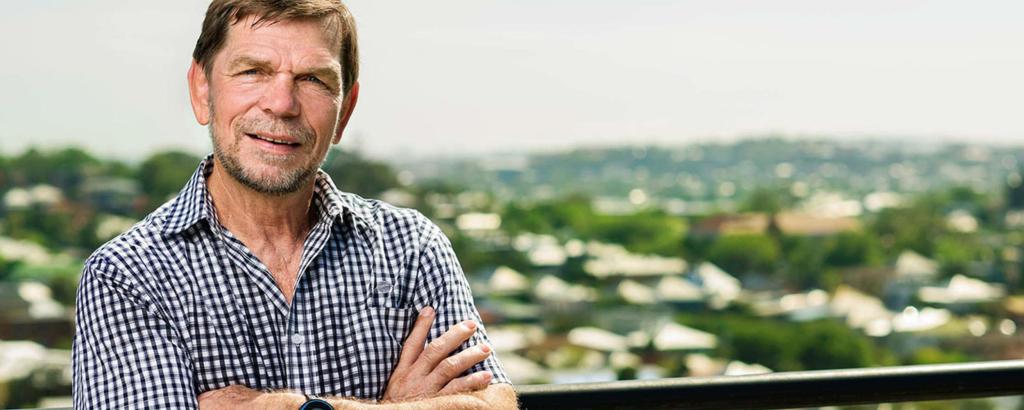
Technology may be changing our lives in countless ways. But the more things change, the more some things stay the same – including the irreplaceable experience of getting on a plane, looking someone in the eye, and shaking hands on a business deal.
“If you remember 20 years ago, video conferencing was all the go; people were saying it would do away with travelling,” says Graham ‘Skroo’ Turner, founder and chief executive officer of the Flight Centre Travel Group.
“Today, people do use video conferencing a lot, but face-to-face business is still so important.
“If you’re expanding overseas, for example, it’s something you’ve just got to do. If you’re looking at acquiring a business you want to talk face-to-face to the people you’re buying this business from. And it’s not just acquisitions, but sales, dealing with suppliers… it’s essential for a whole range of activities that just don’t work as well on the phone or online.
“That’s why business travel is growing consistently year after year. I don’t think there’s going to be much change in that.”
Changing role
It has been 14 years since Skroo established FCM Travel Solutions, Flight Centre’s flagship travel management company.
In that time, technology may not have done away with the need for corporate travel, but it has dramatically changed how FCM manages that travel.
“Things were done manually back then,” Skroo says. “A lot of time was spent with clients on the phone, booking airfares.
“Today, a lot of the time-consuming stuff, such as booking complex flights, is done automatically. And a lot of the invoicing and admin as well.
“Most of our effort now goes into looking after the interests of the clients rather than doing their bookings. Making sure they have what they need, that we can organise transfers and hotels, and all the small things.
“The number one thing clients want is seamless travel experiences without problems, and as automatic as possible."
Veteran Traveller
Raised near Stanthorpe, Queensland, Skroo got his nickname (after the Turner brand of screwdrivers) as a schoolboy. He trained as a veterinary surgeon before taking a new road in 1973, when he and two mates bought a couple of double-decker buses in England and set up Top Deck Travel, running tours to Europe and North Africa.
By 1980, the company had 70 to 80 buses. A year later, Skroo returned to Australia and set up Flight Centre.
He’s done a lot of travelling over the years, and still jumps on a plane at least every couple of weeks, going interstate, overseas or around the world. Today, his seats are somewhat more comfortable than those on the Top Deck buses. Airlines are really lifting their game to ensure businesspeople are comfortable and productive when they’re on the move.
“This has been called the golden age of travel,” Skroo says. “The airlines’ product is so much better than it was 10 years ago, let alone 20 years ago.
“If you’re travelling internationally out of Australia – particularly to Europe and the United States – the business-class offering today is better than the first-class offering was back when we set up FCM.”
Look after yourself
Skroos' number one tip for business travellers is to take advantage of those high-quality business-class seats. “If you’re flying long-haul international, make sure you go business class on a good carrier. Some people say it’s not cheap, but $8000 or $9000 to Europe is money well spent considering what you can do on the way, and how you feel when you get there and get back.
“Your main goal should be to look after yourself. The airlines’ product is so good that you can get a lot of work done and you’ll arrive in a much better state. If you choose economy or a second-rate airline, your people will tend to avoid travelling, which is not a good thing.”
Stay productive
Doing anything you can to avoid jetlag is also top of Skroo’s must-do list. “I find that doing some exercise on arrival – particularly if it’s daylight – can help offset jetlag a bit. [And] plan ahead and understand what time zones you will be in.
“If it’s three in the morning the last thing you’ll want to do is work, so make sure to factor that into your plans. And be aware that jetlag is worse if you’re travelling east rather than west. It’s going to take you longer to adapt.”
Of course, there’s always the possibility of hold-ups (unexpected queues at airport security or immigration are Skroo’s main cause of travel frustration), but in general, there’s no reason why your trip shouldn’t run smoothly.
“Things are pretty streamlined now, and very rarely do things go wrong,” Skroo says.
“How much productivity you lose depends on your job. Travelling and meeting face to face might mean there are some things you can’t get done, such as reports and so on, but by travelling you will get generally better outcomes, I think, even if it’s not as time efficient.”